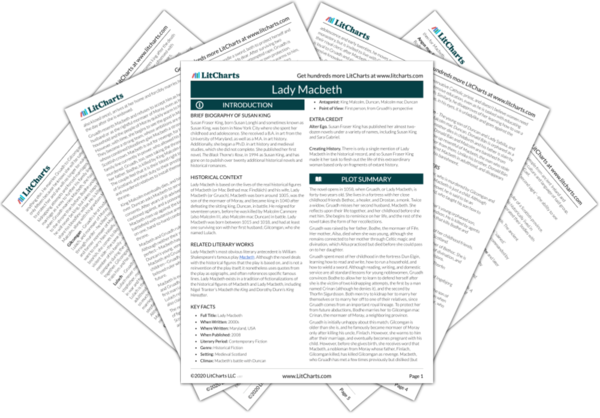Malcolm is totally motivated by revenge, and by his desire to kill Macbeth is fully a desire to make up for the death of his father. The wounds he inflicts on Macbeth are the same wounds Macbeth inflicted on Duncan, and the dates are similarly significant—again showing violence and revenge to be cyclical. Meanwhile, Macbeth does all he can to guarantee his legacy will continue through Lulach.
